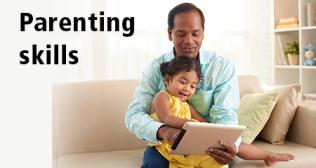
Mental Health and Behavioural Sciences
Life Education For Adocolscents
Dr. Samir Parikh Jul 03, 2014
 Ask yourself the following questions...
Does attraction happen in adolescents?
Do adolescents have relationship problems?
Is there a tendency towards premature experimentation of intimate behaviour?
Is there vulgarity in media?
Is there a reluctance to talk about relationships and a lack of advice?
Is there a concern around responsible decision making?
If your answer is yes to these questions, then it’s clear that there needs to be some guidance that we need to give adolescents to be able to deal with their transition from childhood to the role of a responsible adult.
The approach our education system needs to take is one oriented towards life-skills. Children need life skills to deal with a myriad of situations, be it how to deal with disappointments in life or how to cope with the pressures of exams. Similarly, family life education needs to become an integral aspect of life skills training, a part of our larger educational system.
So when we look at adolescent life education, what all would it involve? It would need to start with body image. Given what goes on in the media, advertising and the world around them, teenagers are already grappling with low self- esteem and insecurities related to the way they view themselves. It’s essential for adolescents to become comfortable with their body, not bother with weight, colour, height and the rest of it.
Secondly, with our increasing reliance of the internet, and particularly social networking, in the modern day world, ensuring that adolescents use the internet safely and responsibly has become of paramount importance – just basic things like how to maintain their privacy and safety. We need to instil the importance and courage to maintain boundaries so that these appalling incidents involving candid photographs and MMSs are done away with.
At the same time, we need to look at relationship dynamics, and inculcate the ability to be open with parents, and be able to approach and talk to counsellors when required. At the end of the day, adolescent relationships are a reality we need to accept. Hushing up about it or reprimanding teenagers for engaging in such behaviours will only turn them away from us and towards other untrustworthy sources like their peer group and the internet.
There is no doubt that one part of this education certainly needs to involve the medical aspect as well, in terms of awareness and medical safety. But that’s just one aspect of a much larger picture. Education needs to be about nurturing adolescents into developing a healthy personality. The nomenclature and semantics don’t matter. It is the approach that matters, because it’s the onus of adults to ensure that the transition from adolescence to adult life takes place smoothly.
Ask yourself the following questions...
Does attraction happen in adolescents?
Do adolescents have relationship problems?
Is there a tendency towards premature experimentation of intimate behaviour?
Is there vulgarity in media?
Is there a reluctance to talk about relationships and a lack of advice?
Is there a concern around responsible decision making?
If your answer is yes to these questions, then it’s clear that there needs to be some guidance that we need to give adolescents to be able to deal with their transition from childhood to the role of a responsible adult.
The approach our education system needs to take is one oriented towards life-skills. Children need life skills to deal with a myriad of situations, be it how to deal with disappointments in life or how to cope with the pressures of exams. Similarly, family life education needs to become an integral aspect of life skills training, a part of our larger educational system.
So when we look at adolescent life education, what all would it involve? It would need to start with body image. Given what goes on in the media, advertising and the world around them, teenagers are already grappling with low self- esteem and insecurities related to the way they view themselves. It’s essential for adolescents to become comfortable with their body, not bother with weight, colour, height and the rest of it.
Secondly, with our increasing reliance of the internet, and particularly social networking, in the modern day world, ensuring that adolescents use the internet safely and responsibly has become of paramount importance – just basic things like how to maintain their privacy and safety. We need to instil the importance and courage to maintain boundaries so that these appalling incidents involving candid photographs and MMSs are done away with.
At the same time, we need to look at relationship dynamics, and inculcate the ability to be open with parents, and be able to approach and talk to counsellors when required. At the end of the day, adolescent relationships are a reality we need to accept. Hushing up about it or reprimanding teenagers for engaging in such behaviours will only turn them away from us and towards other untrustworthy sources like their peer group and the internet.
There is no doubt that one part of this education certainly needs to involve the medical aspect as well, in terms of awareness and medical safety. But that’s just one aspect of a much larger picture. Education needs to be about nurturing adolescents into developing a healthy personality. The nomenclature and semantics don’t matter. It is the approach that matters, because it’s the onus of adults to ensure that the transition from adolescence to adult life takes place smoothly. Categories
Clear allMeet the doctor

Dr. Samir Parikh
CONSULTANT MENTAL HEALTH & BEHAVIOURAL SCIENCES | Fortis Shalimar Bagh
- Mental Health and Behavioural Sciences | Mental Health and Behavioural Sciences | Psychiatry | Clinical Psychology
-
21 Years
-
900



















